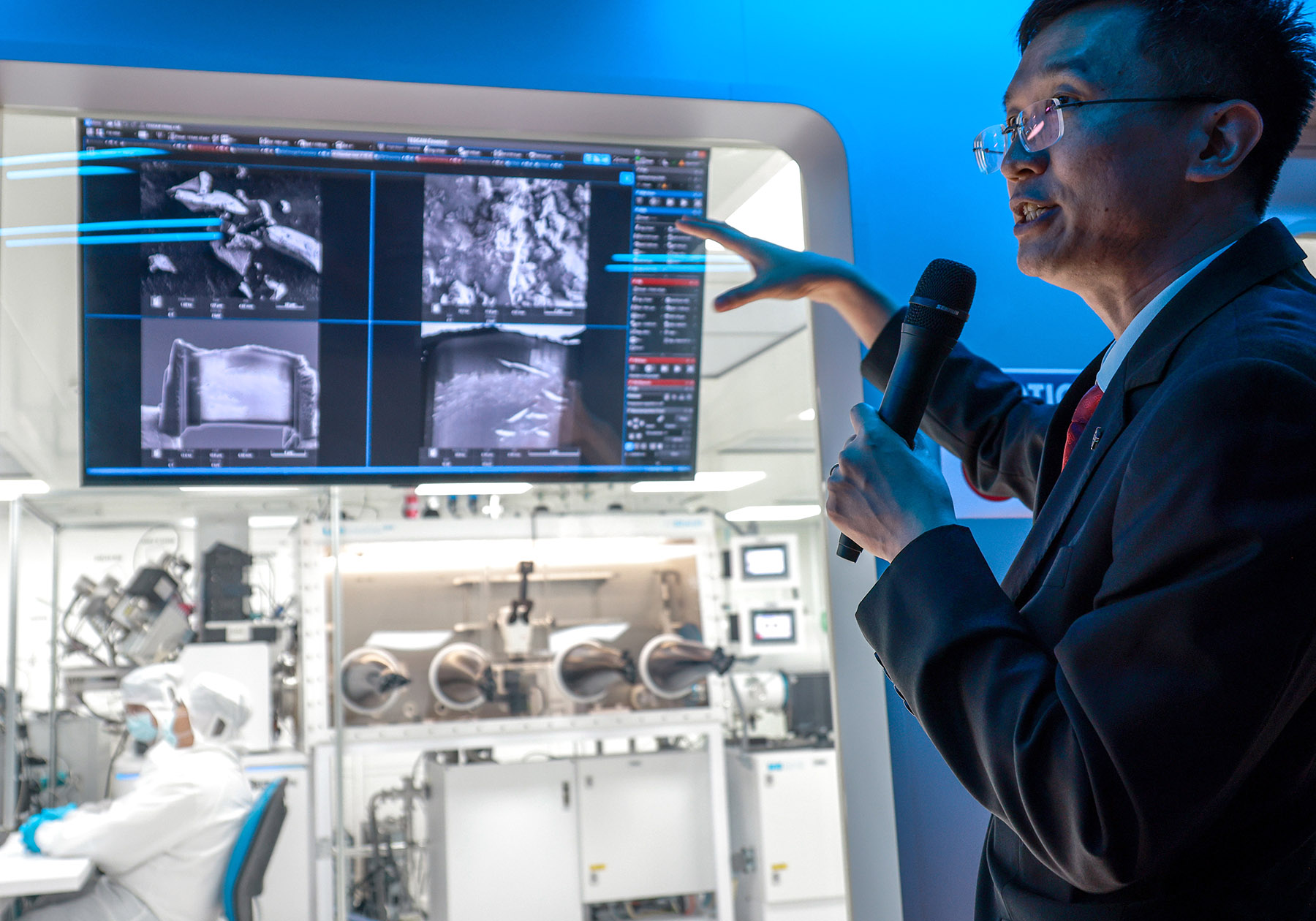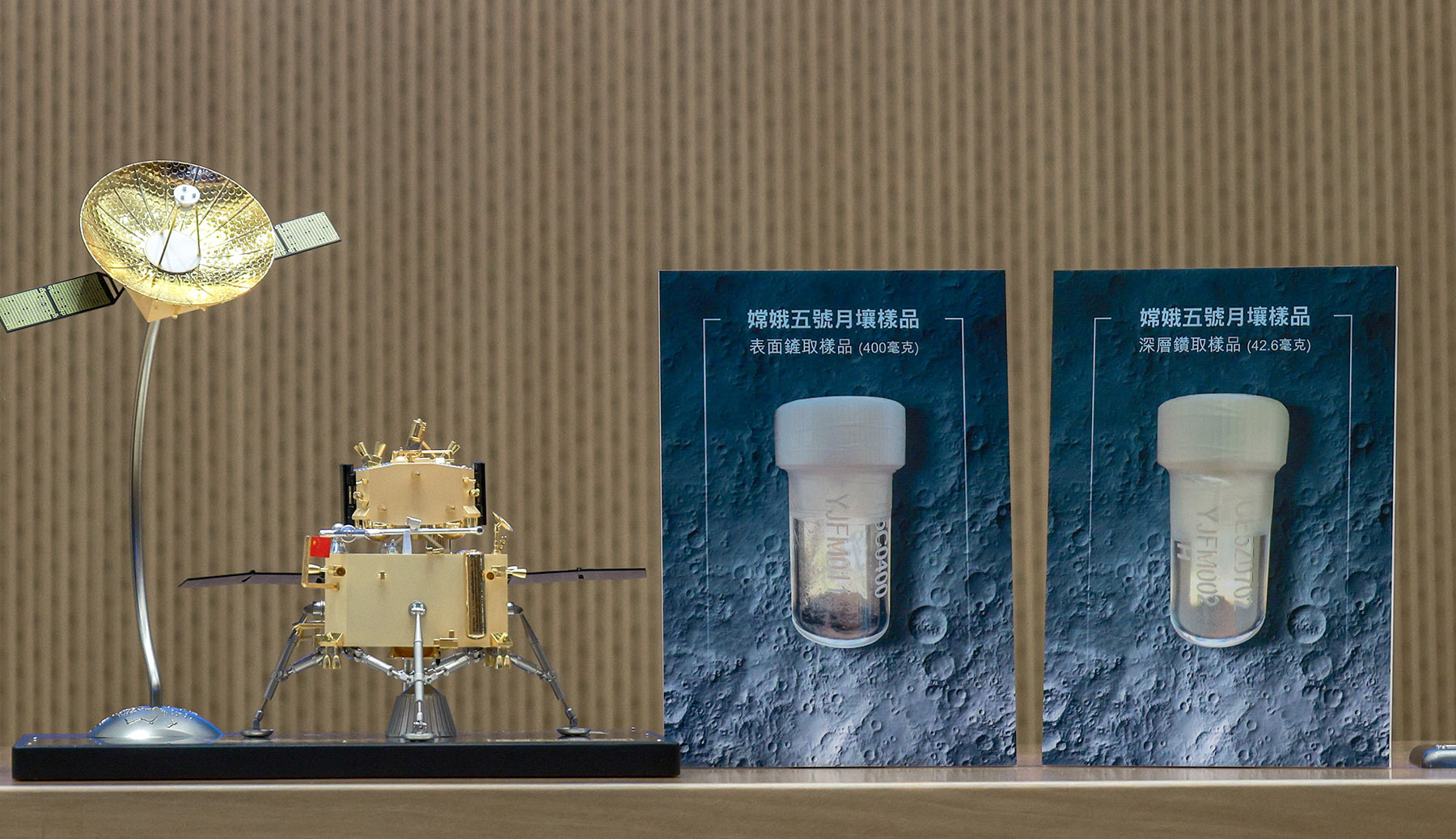
Hong Kong Polytechnic University plans to use lunar soil samples retrieved by the Chang'e 5 spacecraft four years ago to analyze the moon's water resources, with insights expected to bolster research on surface conditions and support further human space exploration missions.
The university obtained a surface soil sample weighing 400 milligrams from national space authorities, as well as a subsurface soil sample totaling 42.6 milligrams, researchers said at a news conference on Wednesday.
READ MORE: Chang'e-5 samples to open new chapter in HK's lunar research
The Surface Sampling and Packing System the university developed assisted in the collection of lunar soil samples by Chang'e 5 in 2020 and Chang'e 6 this year.
Wu Bo, associate director of PolyU's Research Center for Deep Space Explorations, said that water exists in the lunar soil in different forms, and the team's research focus will be on the water content in the lunar soil and its origin.
Its findings will offer insights into the formation of soil on the moon's surface and other celestial bodies, as well as the lunar water resources' relationship with solar wind.
He said that finding water resources is also crucial for future space missions. For instance, part of the missions of Chang'e 7 and Chang'e 8 will be to form the basis for an international research station on the moon. Water resources will help astronauts stay there longer.

Wu said previous research in the area has not achieved remarkable results, and PolyU hopes to fill the gap.
Given the immense value and scientific significance of the lunar soil, the team has used cutting-edge scientific equipment to minimize sample loss during research and transfer.
Wu said the university will also apply for lunar soil samples collected by Chang'e 6, which recently made history by bringing back the world's first samples from the far side of the moon.
ALSO READ: HK researchers play vital role in nation’s historic moon mission
The research team plans to compare samples retrieved by the two latest Chang'e missions, including examining the mineral composition, rare earth element content, water content and other parameters.
It is also looking forward to participating in the nation's research on samples from Mars and manned lunar landing plans, said Yung Kaileung, director of PolyU's Research Centre for Deep Space Explorations.
PolyU has participated in various national deep space exploration missions since 2010, including Chang'e 3, 4 and 5, accumulating extensive experience and expertise.
Brandon Lam contributed to this story.



